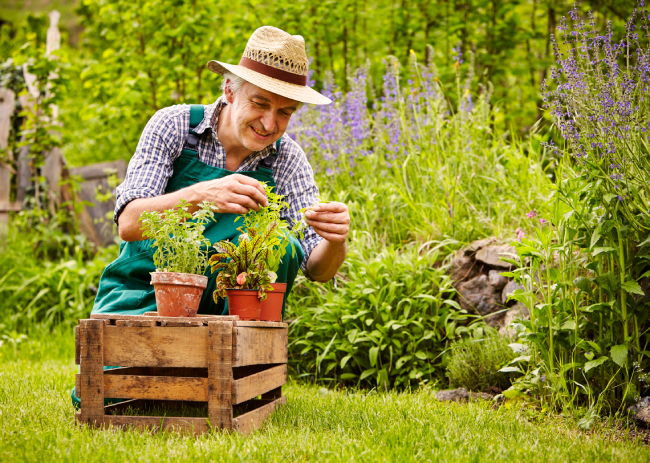Living on land that is taken care of can improve your mental health and home insurance rates. Gardening can help with various mental health issues, including attention and concentration since it helps enhance one’s mood.
Some homeowners may also find that having a garden well taken care of might increase their home’s value by 15% or more, depending on their home insurance type.
We’ll explore the type of landscaping that improves your well-being and your property value. We’ll also discuss how increased property value affects your homeowner’s insurance rate.
What are the mental health benefits of gardening?
Gardening is a great way to manage anxiety and stress because it might help you feel more at ease and fulfilled. Concentrating your attention on the everyday chores and intricacies of gardening might help you feel better in the present by reducing unpleasant thoughts and sensations.
Working in your garden, away from the distractions of television and mobile phones, may soothe the spirit and help you rediscover a sense of calm in a chaotic world.
While tending to your plants, the time you spend in your garden is never wasted and provides mental and emotional wellness.
Eating organic herbs, fruits, and vegetables can also improve your well-being because they can be healing to the body without the added chemicals.
You have more control over the chemicals you feed your food when you cultivate it yourself. The organic garden sector is also fast expanding, and there are numerous non-toxic fertilizers and disease management choices available today.
For example, Integrated pest management is simple and helps you control insect populations without using toxic substances such as glyphosate. As a reward, you can be assured that the food you’re giving your family is healthy, fresh, and local.
How does gardening benefit my home’s value and insurance?
Most homeowners who put time and money into improving their property want their efforts to increase their home’s value, and gardening can accomplish that. Strategically planned landscaping beautifies your lawn, and it may also raise the value of your property by around 15% to 30%.
Native plants, for instance, can raise the value of your home. Trees, shrubs, and flowers that grow naturally in your area are native plants. Since they naturally thrive in their native environment, they can boost property value by requiring less upkeep.
Future homeowners can enjoy having a beautifully landscaped property without worrying about the vast cost of upkeep.
However, although gardening can improve your anxiety and home value, there are instances in which it can also harm your property value. One example is if trees are placed very close to your house, as they grow their roots could spread beneath your property to the point where they could cause foundation problems.
The roots of oaks, willows, and poplars can cause property damage if not correctly planted. In addition to impacting your foundation, they could also harm pathways and patios by breaking through concrete.
Tree roots can also gravitate near sewer lines since they naturally seek out water. When a root encounters leakage in the water pipe, it immediately grows into it, creating clogs, fractures, and water line disruption.
It can cause floods in the yard, as well as a variety of other issues. So to avoid decreasing your property value, ensure the tree you plant is acceptable for the yard by doing some research.
Also, confirm the location of the electric, gas, sewer, and cable lines with your utility provider so you can decide where to plant your plants and trees properly.
Homeowner’s Insurance and Gardening
The amount of homeowners insurance you buy may be influenced by your garden, hence increasing the cost of your rate.
Dwelling coverage refers to the part of your policy that covers your house and its surroundings, including outside areas. Because your landscaping and gardens add value to your property, you’ll want to factor it into your insurance purchase.
If a natural disaster caused damage to your garden, garden tools, or structures such as a greenhouse, you would be covered (minus your deductible).
A simple phone call or email to your homeowner’s insurance carrier to check that your garden is fully protected when considering the catastrophes that may strike in your area is the best method to guarantee that your garden is adequately covered.
Imani Francies writes and researches for the insurance comparison site, ExpertInsuranceReviews.com. She enjoys gardening and providing tips to other gardeners looking to lower their homeowner insurance rates.

